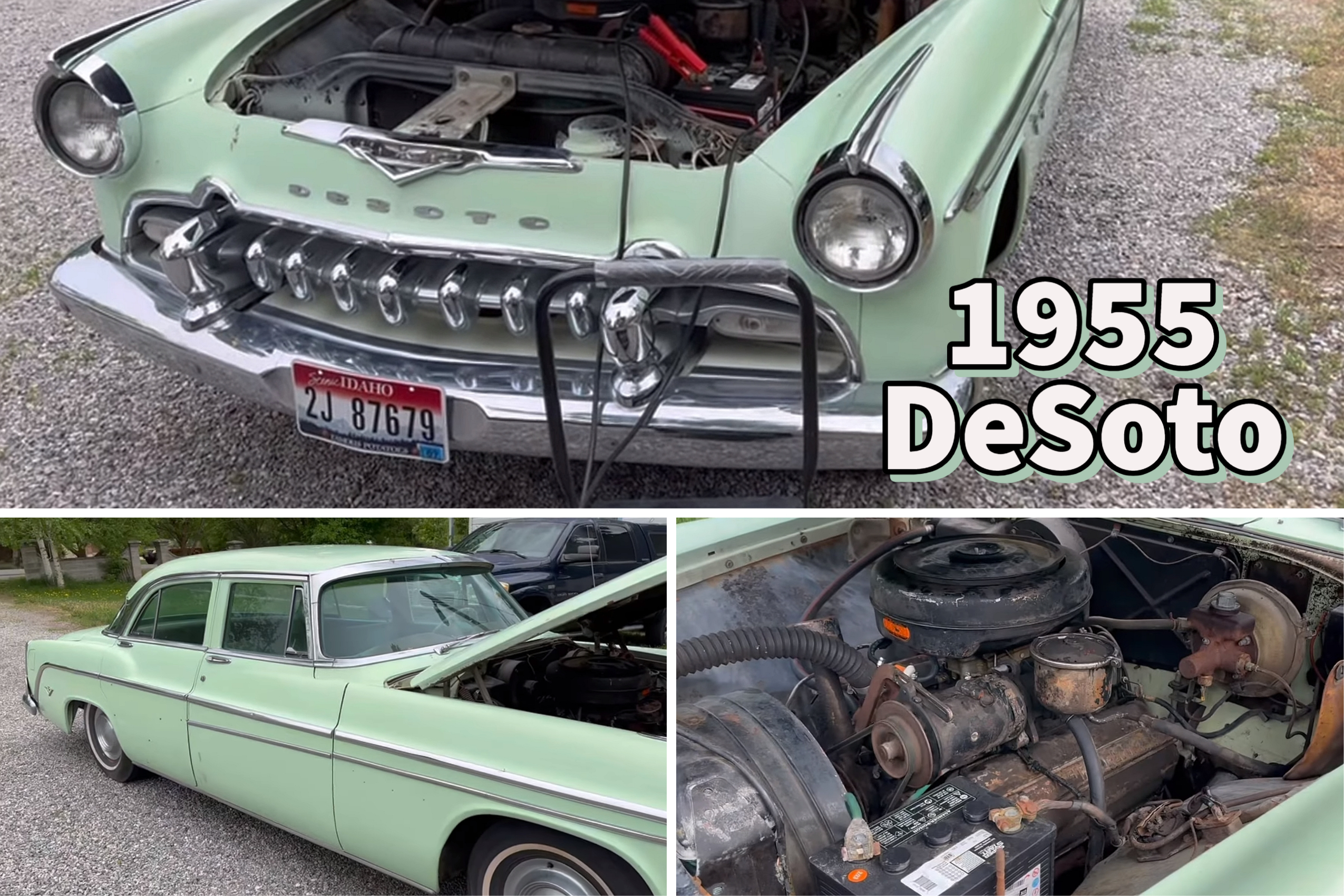Founded in 1928 by Walter P. Chrysler, the DeSoto marque slotted between Plymouth and Dodge in the Chrysler lineup. It was initially created to compete with Pontiac, Hudson, and Studebaker in the mid-price class. In 1933, DeSoto was moved above Dodge and began offering Chrysler bodies on shorter wheelbases.
The move proved popular, and DeSoto retained its position over the next few decades. However, stiff competition, the 1958 recession, and Chrysler’s introduction of the lower-priced Newport in 1960 forced DeSoto into the history books. Discontinued in 1961, the brand produced over two million vehicles and left a few iconic nameplates behind.
The Adventurer is perhaps the most famous and desirable. Introduced initially as a sub-series of the Fireflite, it became the company’s limited-production high-performance two-door model. It benefited from the corporation’s “forward look” design and was essentially a more affordable Chrysler 300 “letter series.”
Then there’s the Fireflite, which debuted in 1955, one year before the Adventurer arrived. A top trim package for the DeSoto Firedome, the Fireflite was just as fancy as the Adventurer. However, this nameplate wasn’t restricted to two-door models. The Fireflite also spawned a four-door sedan and even a station wagon.
Although not quite as popular as the lower-priced Firedome, the Fireflite found more than 37,000 customers in 1955. That number is high enough to render the 1955 Fireflite a common classic, but the truth is far fewer of them have survived for almost seven decades. The four-door sedan you see here is one of the lucky ones, and it’s surprisingly original for a 68-year-old rig that spent some time in a barn.

Rescued by YouTube’s “Old Skool Rides,” this gorgeous Mopar was last titled in 2007, according to the license plate. This means it was parked in the barn it was dragged out from for 16 years. And surprisingly enough, for a classic that sat for more than a decade, the Fireflite still runs and drives. Moreover, it’s still rust-free and complete, save for some missing chrome trim.
It’s unclear whether the car was repainted or not, but the mint green-like hue looks a lot like the Cove Green color that DeSoto offered in 1955. So even though it might not be original, it’s a period-correct repaint that looks the part (despite a few flaws here and there). But if it is, indeed, the original paint job, I’m literally blown away by its condition after almost 70 years. And boy, what a gorgeous color it is!
The interior is even more spectacular because this is where the color scheme extends to include three different shades of green plus grey inserts on the seats. And while the exterior may be a repaint, I’m positive the interior is all original since there’s surface rust on the upper dash, some discoloration on the door panels, and wear and tear on the front seats.
The good news continues under the hood in the form of a factory-original HEMI V8. Of course, this isn’t the iconic 426-cubic-inch (7.0-liter) mill that made a name for itself during the muscle car era, but a first-generation unit of the FirePower variety.
DeSoto introduced its version of the engine in 1952 and offered five different variants until 1957. This sedan packs a 291-cubic-inch (4.8-liter) mill that was essentially a 276-cubic-inch (4.5-liter) “Firedome” with an increased bore. Fitted with a four-barrel carburetor, the engine was rated at 200 horsepower when new. It still mates with its original Powerflite two-speed automatic gearbox and sounds rather lovely while idling.
In all, it’s a surprisingly original Mopar that just got a second chance at life. And hopefully, it will get a complete restoration because 1955 DeSotos are rare in any condition.
